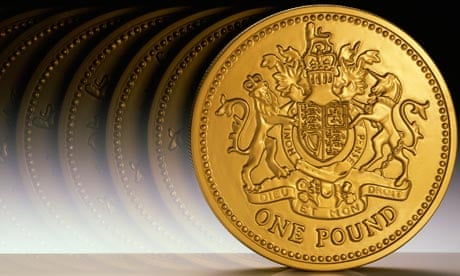The £1 coin or the "sorry mate, I'll have to give you one of these" as shopkeepers call it, will reign undisputed in Britain's purses by 1986. The last green pound note, heir to a paper tradition going back to 1797, will be issued on December 31.
The news was given to the Commons yesterday by the Chancellor, Mr Nigel Lawson, who also announced that the £20 note would be reissued shortly with a different background colour and better security measures to deter forgers. The departure of the pound note is unexpectedly swift, especially after Mrs Thatcher's declaration of affection for it a year ago.
The £1 notes will remain legal tender at least until the end of next year, although the Treasury expects them to be very scarce by then.
"People stuff them in their pockets like this," said Mr Iain Stewart, Economic Secretary at the Treasury, producing a £1 note which looked as though he had been battering it all afternoon.
"They are treated more like a coin nowadays than banknotes used to be. People use them for the sort of purchases where you tend to put your hand in your pocket rather than get out your wallet."
Inflation, in other words, has added to its long list of currency victims; the paper pound has gone the way of the 10 shilling note which disappeared in 1970. Six years later, said Mr Stewart, the pound was worth less than the 10 shilling note.
The coin was not greeted with enthusiasm but the Mint and Treasury are confident that things have improved. Britain always disliked new coins, said Mr Stewart.
The introduction of paper pounds in 1928 (after a gap of a century when sovereigns ruled) caused popular dismay, he said.
The Mint is also doing its best to give the milled-edged coin as much character as the notes, whose record of changing chief cashiers' at the Bank of England appeals to many, particularly collectors.
Messrs O'Brien, Peppiatt (on the 1940 blue emergency note), Hollom, Forde, Page and now Somerset, have successively promised to pay the bearer on demand the sum of £1. The coins have already altered in their brief life to include a Scottish version with Nemo Me Impune Lacessit round the edge, instead of the motto Decus et Tutamen, used in 1983. Next year will see the arrival of a Welsh leek and the line Pleidiol wyf I'm Gwlad, from Land of My Fathers.
Mr Stewart said that Mrs Thatcher who spoke disparagingly of the pound coin a year ago now agreed that the time to bid the note farewell had come.
Questioned about the next logical step, he declared his firm faith in the Government's counter-inflation policy. " think the £5 note will be with us for many years."

Comments (…)
Sign in or create your Guardian account to join the discussion